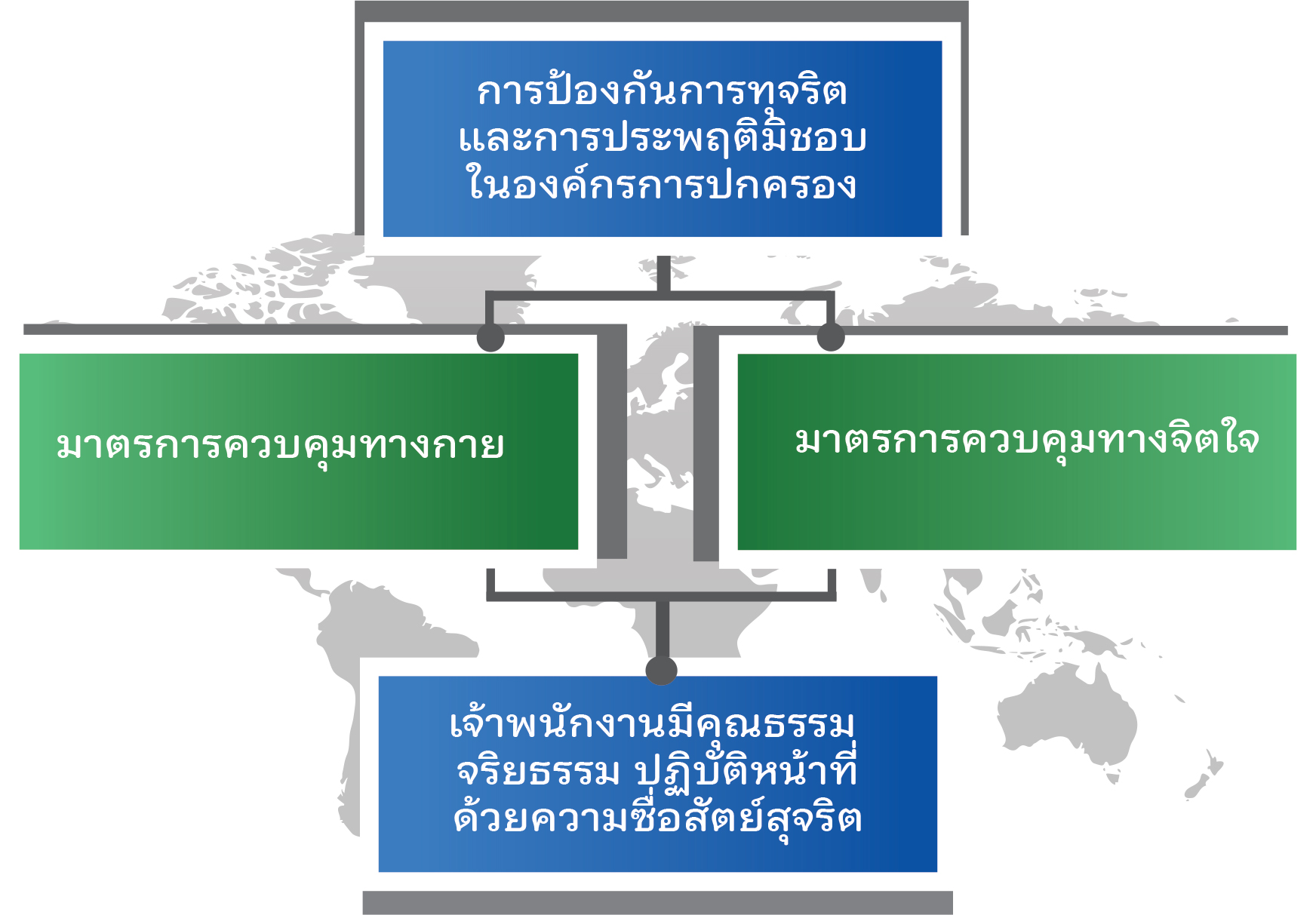The Application of Buddhist Philosophy to Prevent Corruption and Misconduct in Local Government Organizations
Main Article Content
Abstract
The purposes of this research were 1) study theoretical concepts relevant to the research; 2) study identify measures to prevent corruption and misconduct in local government organizations; and 3) analyze the application of Buddhist philosophy in combating corruption and misconduct within these entities. This documentary research involved gathering data from both primary and secondary sources and employing descriptive analytical methods based on inductive reasoning.
The results revealed that:
1. Theoretical Framework: The study categorizes related concepts into five groups: 1) Buddhist philosophy; 2) corruption and misconduct; 3) local government; 4) ethics; and 5) theories on consciousness, emphasizing awareness and cultivation.
2. Preventive Measures: Identified measures against corruption and misconduct include; 1) legal measures; 2) governing and administrative measures of the state; 3) measures controlled by the internal audit control system of local administrative organizations; 4) measures for inspection by citizens and civil society; 5) ethical measures Buddhism; 6) measures focus on administrative processes within the organization.
3. Buddhist Philosophy Application: The research highlights the effectiveness of Buddhist principles—such as 1) Lokapāla-dhamma (Hiri Ottappa), 2) Five Precepts (five-sīla), 3) Ahiṁsa, 4) Three Sucarita-dhamma Kathā, 5) Rājavadī-dhamma, and Four Sammappadhānaused to prevent corruption and misconduct in six measures: 1) legal measures; 2) governing and administrative measures of the state; 3) measures controlled by the internal audit control system of local administrative organizations; 4) measures for inspection by citizens and civil society; 5) ethical measures Buddhism; 6) measures focus on administrative processes within the organization.
Article Details

This work is licensed under a Creative Commons Attribution-NonCommercial-NoDerivatives 4.0 International License.
เพื่อให้เป็นไปตามกฎหมายลิขสิทธิ์ ผู้นิพนธ์ทุกท่านต้องลงลายมือชื่อในแบบฟอร์มใบมอบลิขสิทธิ์บทความ ให้แก่วารสารฯ พร้อมกับบทความต้นฉบับที่ได้แก้ไขครั้งสุดท้าย นอกจากนี้ ผู้นิพนธ์ทุกท่านต้องยืนยันว่าบทความ ต้นฉบับที่ส่งมาตีพิมพ์นั้น ได้ส่งมาตีพิมพ์เฉพาะในวารสาร วิชาการธรรม ทรรศน์ เพียงแห่งเดียวเท่านั้น หากมีการใช้ ภาพหรือตารางของผู้นิพนธ์อื่นที่ปรากฏในสิ่งตีพิมพ์อื่นมาแล้ว ผู้นิพนธ์ต้องขออนุญาตเจ้าของลิขสิทธิ์ก่อน พร้อมทั้ง แสดงหนังสือที่ได้รับการยินยอมต่อบรรณาธิการ ก่อนที่บทความจะได้รับการตีพิมพ์References
ไทยพับลิก้า. (2566). ดัชนีชี้วัดภาพลักษณ์คอร์รัปชันโลก ปี 2559 คะแนนไทยร่วงจาก 38 เป็น 35 อันดับตกจาก 76 เป็น 101 จาก 176 ประเทศ. เข้าถึงได้จาก http://thaipublica.org/2017/01/corruption-perceptions-index-2016-thailand/
พระมหาไพรัชน์ ธมฺมทีโป, สรายุทธ อุดม และสาคร ธระที. (2564). พระสงฆ์กับการพัฒนาจิตสำนึกต่อต้านการประพฤติทุจริตในสังคมไทย. บัณฑิตศึกษาปริทรรศน์, 17(2), 1-7.
พิเชษฐ ทั่งโต. (2559). พุทธธรรมกับการป้องกันปัญหาการทุจริตคอร์รัปชั่นในสังคมไทย. จันทรเกษมสาร, 22(43), 10-12.
วราภรณ์ จันทนากูล. (2565). การแก้ไขปัญหาการทุจริตคอรัปชั่นแนวพุทธ. เข้าถึงได้จาก https://shorturl.asia/fK1jM
ศาลอาญาคดีทุจริตและประพฤติมิชอบกลาง. (2560). ผลการดำเนินงานด้านคดีของศาลอาญาคดีทุจริตและประพฤติมิชอบทั่วราชอาณาจักรประจำปี พ.ศ. 2560-2564. กรุงเทพฯ: ศาลอาญาคดีทุจริตและประพฤติมิชอบกลาง.
สำนักงานสภาพัฒนาการเศรษฐกิจและสังคมแห่งชาติ. (2561). แผนแม่บทภายใต้ยุทธศาสตร์ชาติ (21) ประเด็นการต่อต้านการทุจริตและประพฤติมิชอบ (พ.ศ. 2561-2580). กรุงเทพฯ: สำนักงานสภาพัฒนาการเศรษฐกิจและสังคมแห่งชาติ.

